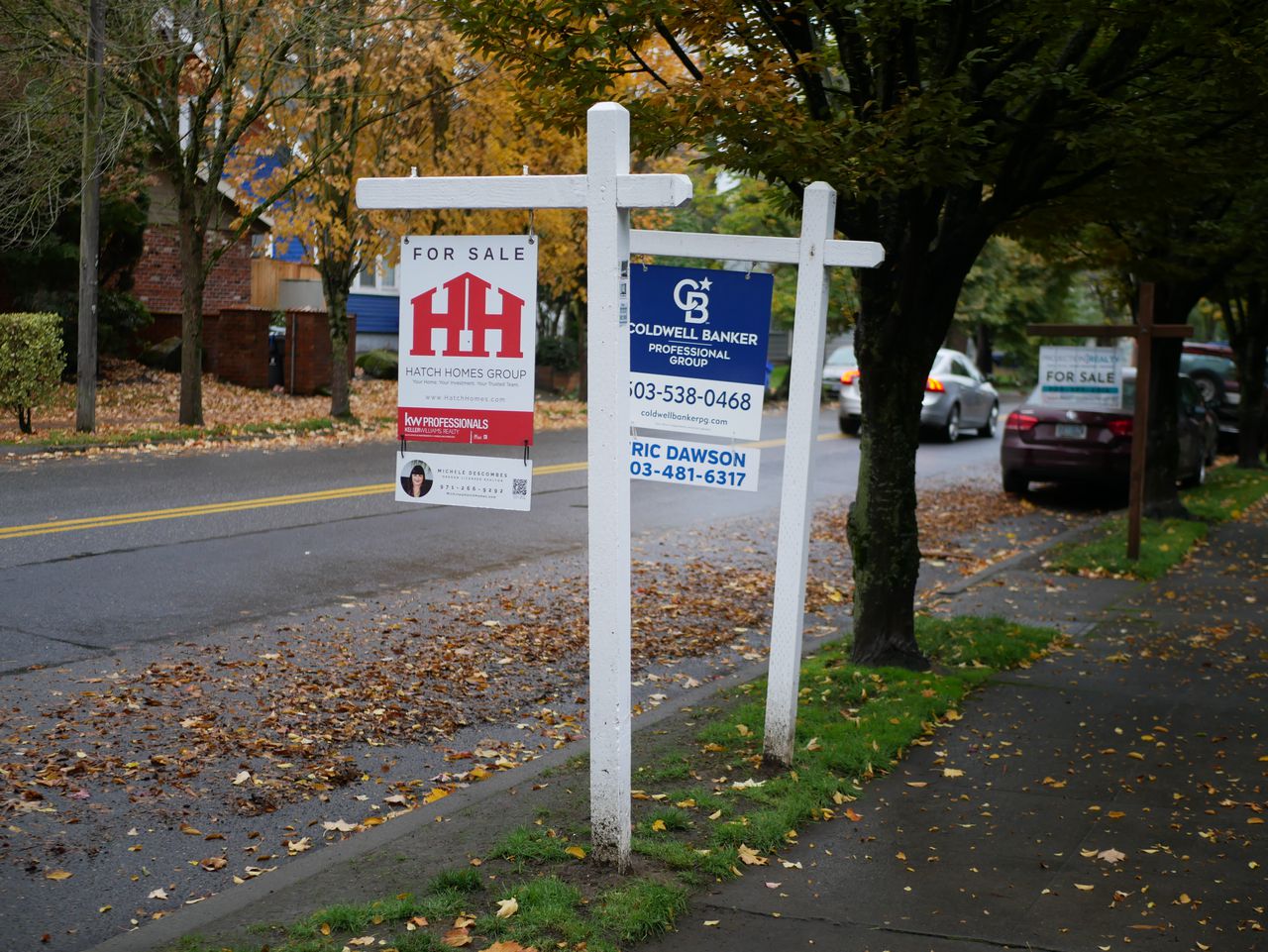
Homebuyers and sellers took the same approach Portland’s housing market this year: they proceeded with caution.
That trepidation stemmed mostly from high mortgage interest rates, which have averaged close to 7% over the past year. Many prospective sellers decided not to put their homes on the market for fear of losing the lower rates on the mortgages they’re paying on their current houses. Interest rates had a chilling effect on buyers, too, who opted to wait until borrowing costs drop.
In some ways the current housing market is a far cry from a year or two ago. Homes are staying on the market longer and there are more active listings.
According to the real estate listing service RMLS, the Portland market also saw its highest inventory in nearly five years — if sales continued at the current pace, it would take 3.5 months to sell all available homes. The last time inventory was above 3 months was in January 2019.
But despite the slight increase in availability, home prices have stayed roughly the same — the median sale price is about $533,000, just a 3% dip from last year. And new listings are overall lower than the past two years.
“The sheer lack of transactions is something we will remember 2023 for,” said Shelly Brown, an agent with Keller Williams Sunset Corridor.
Portland-area real estate agents said much of the challenge for sellers is accepting that activity has slowed considerably in a very short period of time.
“This is not two years ago where you’ll get 15 offers and not have to do repairs,” said Adam Shepard, a broker with John L. Scott Real Estate. “Sometimes it’s hard to get them over the hump and realize it’s a different market.”
It’s also important for sellers to have their homes market-ready and priced correctly from the jump, Shepard said.
“When you have inventory where the buyer can compare your home to 15 other homes in the immediate area, you don’t have the ability to say, ‘I’ll fix that later, let’s just get it on the market,’” Shepard said. “You have to be show-ready Day 1.”
For John Coleman, selling his home meant adjusting his expectations in more ways than one.
Coleman listed his four-bedroom Forest Park home last October, looking to downsize. He accepted an offer on the home within a couple of weeks, but the buyer’s financing fell through.
Financing problems derailed three more offers before he finally sold the home this month.
Coleman said in addition to reducing price of the home — he eventually dropped it from over $1.15 million to $999,000 — he briefly took the home off the market to make some improvements. Most buyers, he said, didn’t want to purchase a home that wasn’t fully updated.
“I would have thought we were better off selling a blank slate,” he said, noting that he hesitated to replace carpet or lighting fixtures in case the buyer wanted something different.
“But nobody wanted to take anything on,” Coleman said.
Even with homes at a lower price-point, sellers are making more concessions, according to Keller Williams’ Brown.
She is working with a buyer who is about to close on a home for $689,000. They’re negotiating closing costs and extensive repairs — something that wouldn’t have happened a few years ago.
“There’s no thought of, ‘I just have to close on it,’” Brown said. She said higher interest rates have made buyers more wary.
“They want it right,” Brown said. “They’re paying so much per month that at this point it needs to feel like the homes are solid.”
Shepard, the John L. Scott broker, said some sellers are getting creative to attract buyers. They’re offering a “2-1 rate buydown,” where sellers pay a fee to bring down the buyer’s interest rates by two points the first year and one point the second year. By the third year, the buyer will pay the full interest rate.
Economists forecast a slight dip in interest rates next year, which some agents say will turn the market once again in sellers’ favor.
Jennifer Watson, the founder of the real estate group Barnes Portland, said buyers should consider the effect of falling rates that as they decide when to start shopping for homes.
“When (rates) do start dropping, we’ll see those buyers who have been on the sidelines flooding the market again,” Watson said. “It’s going to make it, frankly, a little more difficult on the buyers’ side. We’re not going to have flexibility like we do now.”
She recommended that buyers purchase a home now and then refinance — so they can still take advantage of the relative lack of competition and negotiate over closing costs and repairs.
“I just think we’re going to have the floodgates open when rates start going down,” she said.
—Jayati Ramakrishnan; [email protected]
This post was originally published on this site be sure to check out more of their content.







